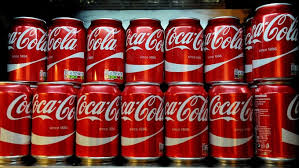
Breaking News
 Tucker shares 'backroom' info about brawl between him and Israel First crowd…
Tucker shares 'backroom' info about brawl between him and Israel First crowd…
 Why Isn't There a Cure for Alzheimer's Disease?
Why Isn't There a Cure for Alzheimer's Disease?
 US Government Revokes 80,000 Visas
US Government Revokes 80,000 Visas
 OpenAI CEO Sam Altman served legal papers during speech in dramatic on-stage ambush
OpenAI CEO Sam Altman served legal papers during speech in dramatic on-stage ambush
Top Tech News
 Goodbye, Cavities? Scientists Just Found a Way to Regrow Tooth Enamel
Goodbye, Cavities? Scientists Just Found a Way to Regrow Tooth Enamel
 Scientists Say They've Figured Out How to Transcribe Your Thoughts From an MRI Scan
Scientists Say They've Figured Out How to Transcribe Your Thoughts From an MRI Scan
 SanDisk stuffed 1 TB of storage into the smallest Type-C thumb drive ever
SanDisk stuffed 1 TB of storage into the smallest Type-C thumb drive ever
 Calling Dr. Grok. Can AI Do Better than Your Primary Physician?
Calling Dr. Grok. Can AI Do Better than Your Primary Physician?
 HUGE 32kWh LiFePO4 DIY Battery w/ 628Ah Cells! 90 Minute Build
HUGE 32kWh LiFePO4 DIY Battery w/ 628Ah Cells! 90 Minute Build
 What Has Bitcoin Become 17 Years After Satoshi Nakamoto Published The Whitepaper?
What Has Bitcoin Become 17 Years After Satoshi Nakamoto Published The Whitepaper?
 Japan just injected artificial blood into a human. No blood type needed. No refrigeration.
Japan just injected artificial blood into a human. No blood type needed. No refrigeration.
 The 6 Best LLM Tools To Run Models Locally
The 6 Best LLM Tools To Run Models Locally
 Testing My First Sodium-Ion Solar Battery
Testing My First Sodium-Ion Solar Battery
 A man once paralyzed from the waist down now stands on his own, not with machines or wires,...
A man once paralyzed from the waist down now stands on his own, not with machines or wires,...
Coca-Cola teams up with grocery giant Albertsons to steal your smartphone information …

(Natural News) Struggling to maintain its customer base amid lagging sales, soft drink giant Coca-Cola has developed a new program in partnership with grocery supermarkets that invades people's smartphones in order to steal their private information and send them custom-tailored coupons and other marketing material – this, after previously attempting to boost sales by pushing soda for breakfast.
Albertsons is reportedly the first grocery chain to adopt the technology, which utilizes digital signage placed at grocery end caps that targets shoppers and drives them towards the beverage aisle. Once there, shoppers are offered coupons and other promotions designed to entice them to buy more high-fructose corn syrup-laden soft drinks.
According to Food Dive, Coca-Cola has so far launched the program in 250 stores as part of a pilot effort to see how well it goes. But privacy advocates are railing over the invasive nature of the technology, which has the ability to collect personal information from people's smartphones and use it for digital marketing.
Utilizing Google Cloud technologies, the digital signage being employed by Coca-Cola collects data from smartphones that it then uses to deliver targeted messaging as a potential customer walks down an aisle. As he or she moves near the display, it uses this information to deliver content that the company hopes will drive the shopper to the soda aisle.
"We can understand who the consumer is and get the right content and messaging to him or her at the right time," says Greg Chambers, global group director of digital innovation at Coca-Cola. "We're using the power of the cloud to bring a real-time, media-rich experience to shoppers in the store."
Google: The world's biggest privacy invader (along with Facebook)
Coca-Cola admits that fewer and fewer shoppers are venturing down the soda aisle, presumably because more and more shoppers are becoming aware of the toxicity of sugar-laden soft drinks. Thus, the company has had to seek other avenues to lure them back, this latest attempt already showing a return on investment after just one month.
And again, the way Coca-Cola is able to enter people's smartphones is through the Google platform, which mines personal data in order to tailor brand advertising to specific users. This is, of course, the catch behind Google's "free" email and other services – customers don't have to pay, so long as they sign away their right to personal privacy.
It's the same model that social media giant Facebook uses, allowing its users to congregate and converse online for "free," a.k.a. allow their personal browsing habits and other activities to be tracked.



